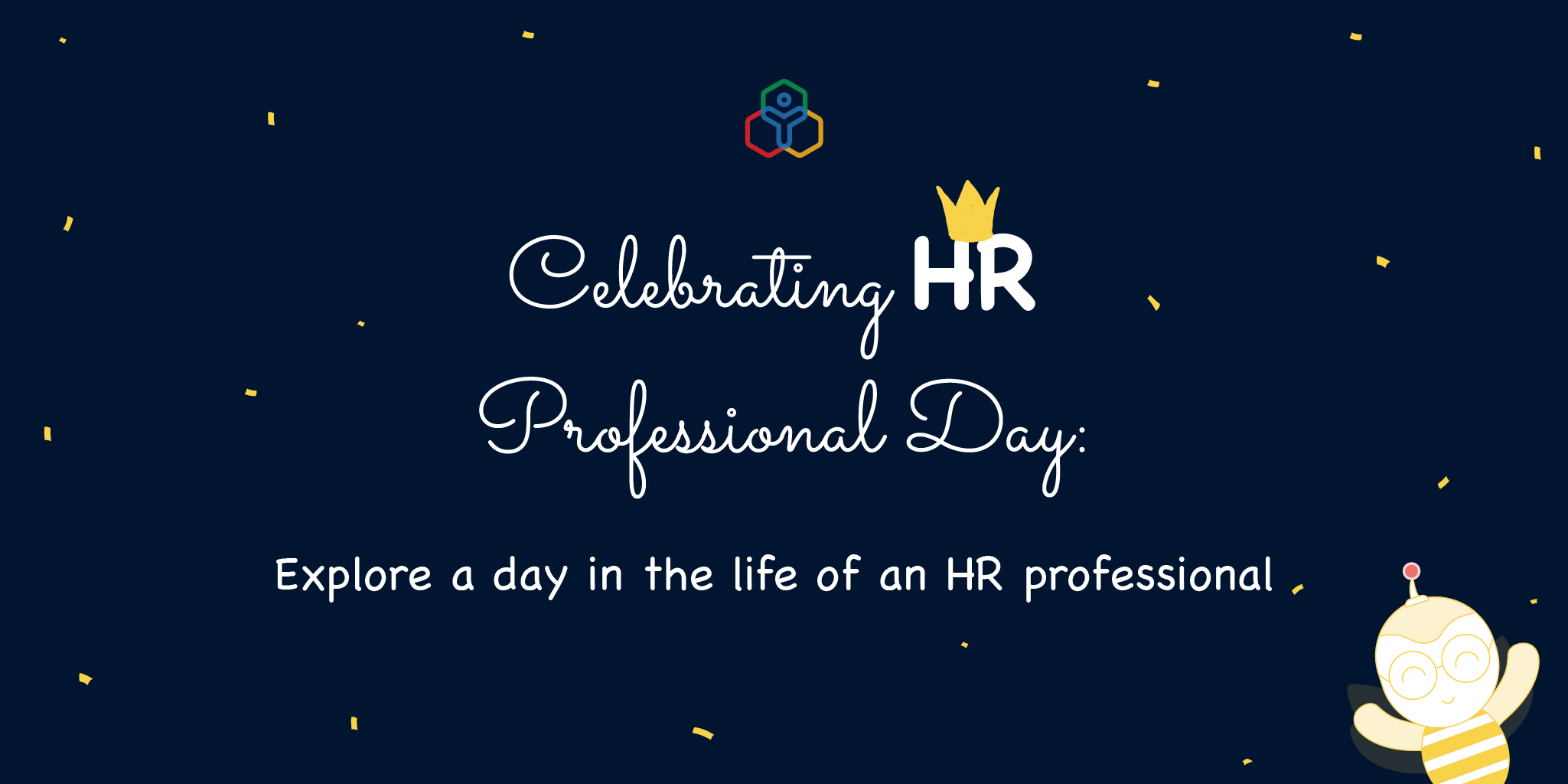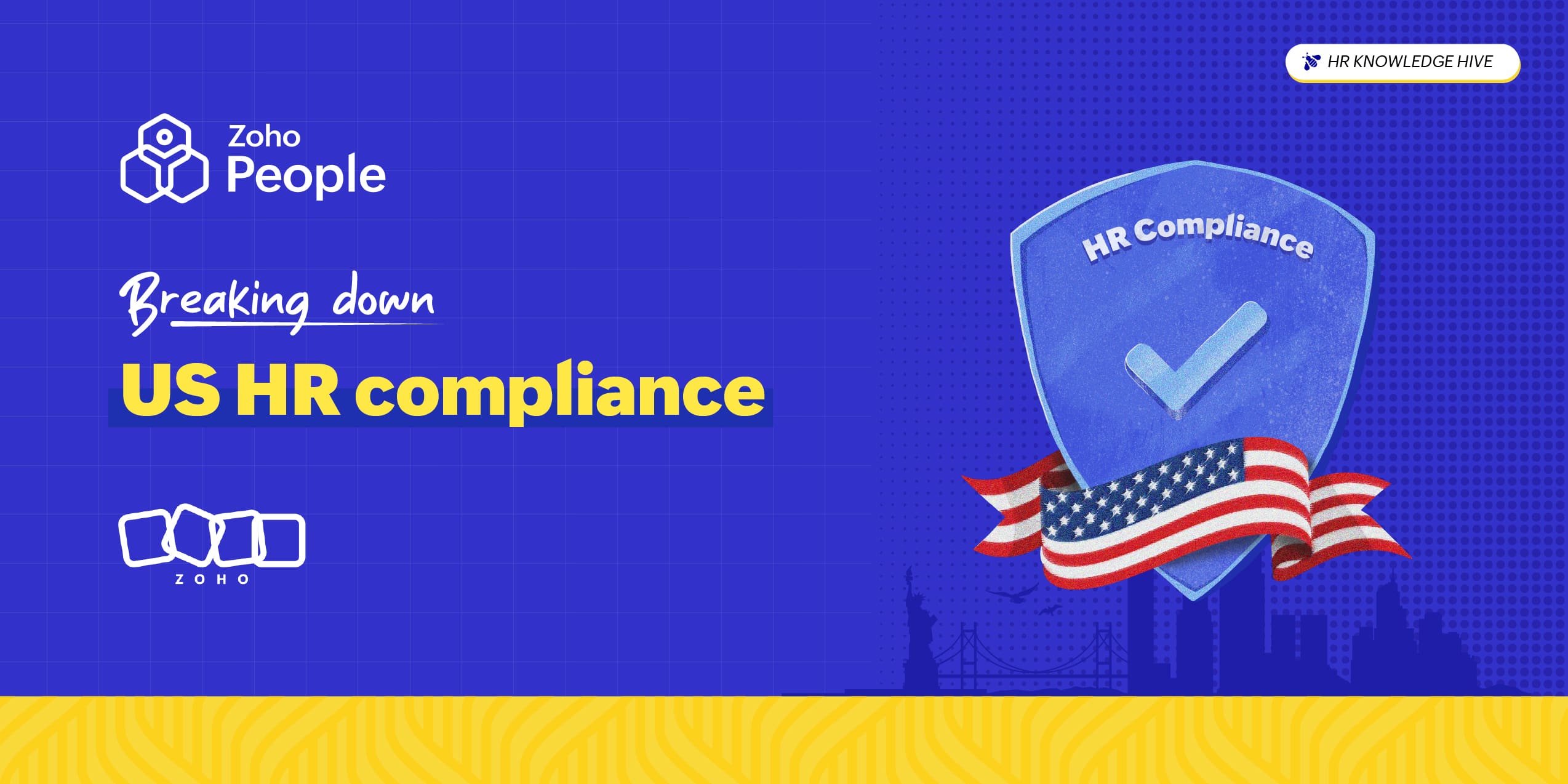- HOME
- HR insights
- Celebrating HR Professional Day: Explore a day in the life of an HR professional
Celebrating HR Professional Day: Explore a day in the life of an HR professional
- Last Updated : August 23, 2023
- 1.9K Views
- 7 Min Read

When businesses first start out, many don't have a designated HR department. Their operations may run smoothly at first, but as they scale up and start recruiting more employees, there is a higher chance that different areas of people management will become increasingly disorganized. This means more than just employee engagement, as well. Imagine trying to keep a company running when you don't know how many employees are taking time off or whether they consistently arrive late, or paychecks are never delivered in time. Not only does this damage your bottom line, but it also leads to higher turnover as employees leave to work in companies that value and take care of them. In other words, companies with strong HR management structures.
HR departments are filled with hardworking professionals who have to wear many hats. They set company policies, enforce anti-harassment laws and codes of conduct, devise people management strategies, advocate for the well-being of employees, and organize company-wide events. Yet oftentimes, the term "HR" is meant by wariness by employees, who may think these professionals work only for the good of the business or that they are in trouble if they ever draw HR's attention. Others may not realize all the duties HR professionals manage aside from hiring and firing.
On this year's HR Professionals Day, we wanted to debunk all of these myths and let the world know the kind of work HR professionals do to support employees every day:
Field emails
Like many of us, HR professionals have to clear their email first thing in the morning. But unlike many of us, HR professionals act as a point of contact for every team in an organization, or in their region's branch at the very least. This leads to a true onslaught of emails each day. If an employee has a complaint, gets injured, wants time off, or refers someone for a position, HR is the go-to department to reach out to. Not to mention that they will also often field emails about things like payroll, compliance, or training, even if they aren't the immediate DRI for that aspect of the business.
HR professionals also send a huge number of emails each day, especially during a hiring cycle. For potential new hires, they have to:
Inform them about interview schedules
Update them about their application status
Share offer and call letters
Distribute and collect all pre-onboarding paperwork
Email may also be used to introduce new hires to their manager or team members. While HR and recruitment software has simplified some of this constant back-and-forth, email is still a very time-consuming part of each HR professional's day.
Conduct interviews
In-person interviews with candidates are usually scheduled in the morning, but remote interviewing has now made it possible to evaluate candidates from around the world. This could mean navigating time zones and cutting into personal time to squeeze in an interview during the early morning or late evening. Depending on the stage of the interview, HR professionals may either facilitate the meeting between the manager and candidate, conduct tests for the candidates, or just meet them to negotiate salary and do a final check for culture fit.
Recruit and onboard employees
Aside from just conducting the interviews, HR professionals may be in charge of completing other administrative tasks related to recruitment. These tasks include:
Coordinating with teams to understand their hiring needs
Clarifying the responsibilities of available openings
Writing compelling job descriptions
Posting these openings on different employment websites
Collecting and screening candidate resumes
Preparing questions for the interview and assessments
Performing background verification
Once a candidate accepts an offer, they must go through onboarding. Though HR professionals may not onboard new hires everyday, they have to ensure that all the necessary paperwork, policies, and guidelines are in place for any time a new person joins the organization. This involves coordinating with different departments like IT, upper management, and whatever team the new employee is joining to make sure everything is ready for their first day. When it comes to actual onboarding, many organizations onboard a group of employees together twice or three times a month. Take a look at this article to learn more about what HR professionals are expected to complete as part of employee onboarding.
Monitor employee time and attendance
In some organizations, HR professionals are expected to monitor employee attendance and working hours on a daily basis. They make sure that employees who are present mark their hours and employees who are absent apply for leave. In addition to this, some of them are responsible for monitoring and approving employee timesheets. Depending on the size of the organization, this can be a huge task to manage just on its own, and any errors in this process can lead to employees being overpaid, underpaid, or even paid late.
Identify training needs and assign assessments
Employee training and development programs are assigned quite often for both new hires and experienced employees. HR professionals are at the forefront of organizing these programs. Depending on the kind of course they are looking to implement, this could involve:
Discussing training needs with team managers
Conducting surveys to gauge employee interest
Finding course instructors
Assigning and organizing assessments
Managing compliance
Tracking employee progress through courses
For some of these courses, employee completion rates and scores are essential aspects of audits and staying in compliance as a business within a certain region. Often times, these mandatory courses are not as engaging for employees, so it can involve a frustrating series of check-ins and reminders to make sure the organization doesn't get penalized during their next audit.
Process payroll
Based on their pay period, HR professionals initiate payroll processing every week, once every two weeks, or once a month. Larger organizations may have dedicated internal or external payroll professionals to take care of this, but in many SMEs, HR professionals are responsible for collecting employee data on attendance, leave, and work hours so that it can be sent to the finance department for final calculations. In addition to this, HR professionals are also involved in deciding the pay, remuneration, and reimbursement benefits for employees.
Define and update company policies
HR professionals are usually the main people who manage attendance, leave, benefits, payroll, code of conduct, and anti-harassment policies in an organization. This means having to stay updated at all times on any workforce laws governing the region their organization operates in and ensuring that their workplace practices are consistent with the terms dictated by those laws. They are also responsible for updating these policies whenever the laws are revised.
Organize performance reviews
Performance reviews are a huge task for HR departments. Based on their organizational policy, these reviews are usually conducted either monthly, quarterly, or twice a year. Some still rely on annual performance reviews, but those are becoming less common as employee engagement grows as a priority amongst businesses around the world.
As part of performance reviews, HR professionals:
Analyze employee performance along with managers
Identify underlying causes for performance disparities
Receive self-evaluation reports from employees
Work with managers to provide performance feedback
Take feedback and questions from employees
Determine raises for employees based on their performance
Set clear expectations and goals for the upcoming performance period
Manage employee well-being
Especially since the pandemic, HR professionals are working harder than ever to prioritize their employees' well-being, understand their needs, and adopt people-centric management strategies. Introducing flexible workplace practices, organizing team-building activities, or implementing wellness initiatives like yoga, meditation, and counseling are just some of the many things HR professionals have been doing to keep their people happy and engaged.
Employee engagement also falls into this category, which involves keeping tabs on how employees are feeling about different areas of their work lives. For example, are the current employee benefits satisfying for them? How do they feel about the latest workplace adjustments? Are there any recommendations they have or things they would like to see implemented at work? More and more, employee experience is becoming a critical factor in organizational success, and HR professionals are at the center of it.
Facilitate employee exits
This is perhaps one of the most challenging aspects of being an HR professional. Managing employee exits effectively is just as important as recruitment for an organization's employer brand. As part of exit management, HR professionals handle paperwork, exit interviews, final settlements, and any legalities regarding the exit. Behind the scenes, though, there's also the mental struggle of employee exits. If it's a termination or a layoff, delivering terrible news to an employee is difficult to navigate with the right amount of tact and empathy.
Thank you, HR!
Today, let's celebrate and recognize the hard work of HR professionals who go above and beyond to balance employee and organizational needs and keep employees engaged, productive, and happy. Without you, every workplace would become a living nightmare, filled with negativity, needless debates, and burnout. From everyone at Zoho, we're wishing you a very happy HR Professional Day! Thank you for all that you do.
 Tarika
TarikaContent Specialist at Zoho People


